
The Jewel of the West African Coast: Libreville
Libreville, the capital city of Gabon, is a vibrant and dynamic destination that offers a mix of modernity and natural beauty. Nestled on the shores of the Atlantic Ocean, this city is a haven for lovers of nature and culture alike. From its pristine beaches to its lush national parks, Libreville offers a unique experience that is both relaxing and adventurous. One of the city's main attractions is the stunning Pointe-Denis Beach, where you can enjoy the sun, sand, and surf. The nearby Akanda National Park is a paradise for bird watchers and nature enthusiasts, offering a glimpse into Gabon's rich biodiversity. For a cultural experience, visit the St. Michael’s Church, famous for its 31 wooden columns carved by a local artist, or explore the National Museum of Arts and Traditions, which showcases Gabon's cultural heritage. Libreville is also known for its vibrant nightlife and culinary scene. The city's numerous restaurants offer a variety of cuisines, from traditional Gabonese dishes to international fare. The bustling markets, such as Marché du Mont-Bouet, provide a unique shopping experience where you can find everything from handmade crafts to fresh produce. Libreville's friendly locals and welcoming atmosphere make it a must-visit destination for any traveler exploring West Africa.
Local tips in Libreville
- Carry some local currency (CFA Franc) as not all places accept credit cards.
- Visit during the dry season (May to September) for the best weather.
- Learn a few basic French phrases; it’s the official language and will help you communicate better.
- Use a reputable guide or tour operator for excursions into national parks.
- Beware of street vendors offering wildlife products; it's illegal and harms local conservation efforts.
The Jewel of the West African Coast: Libreville
Libreville, the capital city of Gabon, is a vibrant and dynamic destination that offers a mix of modernity and natural beauty. Nestled on the shores of the Atlantic Ocean, this city is a haven for lovers of nature and culture alike. From its pristine beaches to its lush national parks, Libreville offers a unique experience that is both relaxing and adventurous. One of the city's main attractions is the stunning Pointe-Denis Beach, where you can enjoy the sun, sand, and surf. The nearby Akanda National Park is a paradise for bird watchers and nature enthusiasts, offering a glimpse into Gabon's rich biodiversity. For a cultural experience, visit the St. Michael’s Church, famous for its 31 wooden columns carved by a local artist, or explore the National Museum of Arts and Traditions, which showcases Gabon's cultural heritage. Libreville is also known for its vibrant nightlife and culinary scene. The city's numerous restaurants offer a variety of cuisines, from traditional Gabonese dishes to international fare. The bustling markets, such as Marché du Mont-Bouet, provide a unique shopping experience where you can find everything from handmade crafts to fresh produce. Libreville's friendly locals and welcoming atmosphere make it a must-visit destination for any traveler exploring West Africa.
When is the best time to go to Libreville?
Iconic landmarks you can’t miss
Sibang Arboretum
Experience the tranquility of Sibang Arboretum, a lush park in Libreville, Gabon, brimming with diverse flora and a peaceful atmosphere.
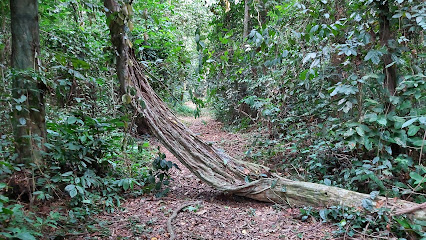
Village des Artisans
Explore the vibrant Village des Artisans in Libreville, where local craftsmanship meets rich Gabonese culture and creativity.
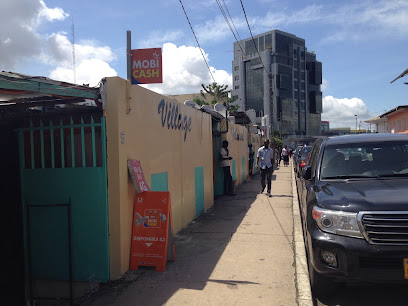
Church of St. Michael Nkembo
Experience the serene beauty and cultural significance of the Church of St. Michael Nkembo, a must-visit Catholic church in Libreville, Gabon.
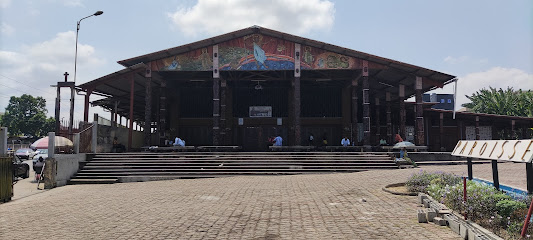
Park Inn by Radisson Libreville
Experience luxury and comfort at Park Inn by Radisson Libreville, your perfect base for exploring Gabon's vibrant capital.

Cathédrale Sainte Marie
Discover the architectural splendor and serene atmosphere of Cathédrale Sainte Marie, a prominent landmark in Libreville, Gabon, for an enriching cultural experience.
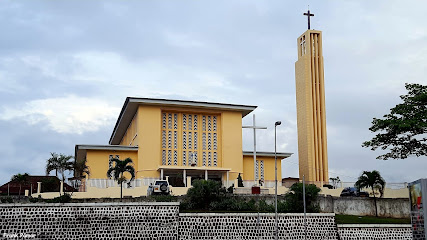
Cecado Glass
Discover the heart of Libreville shopping at Cecado Glass, your go-to supermarket for local flavors and international products.
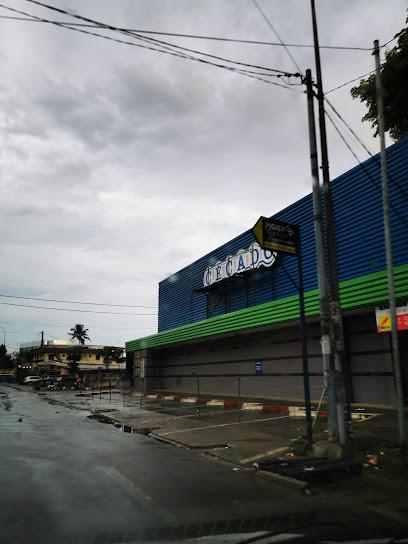
Akanda National Park
Explore the breathtaking beauty of Akanda National Park, a haven for wildlife and nature lovers in Gabon, showcasing stunning landscapes and rich biodiversity.
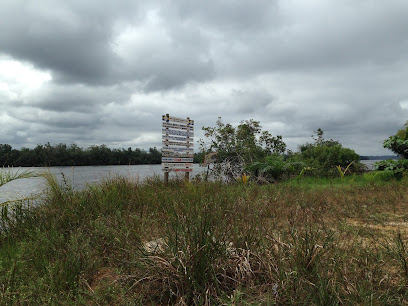
Lopé National Park
Explore Lopé National Park, a UNESCO World Heritage site in Gabon, where breathtaking landscapes and diverse wildlife await your adventure.
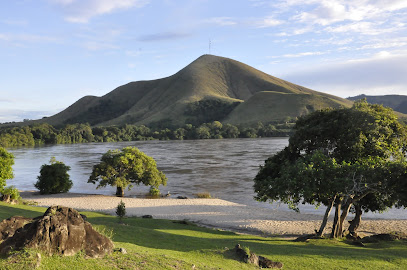
National Museum of Arts, Rites and Traditions of Gabon
Explore Gabon's heritage at the National Museum of Arts, Rites and Traditions, where cultural richness and artistic expression come alive.
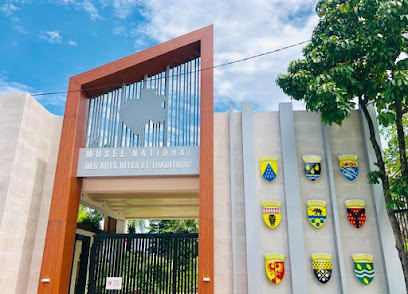
Residence Oceane
Experience the charm of Libreville at Residence Oceane, where comfort meets convenience for an unforgettable stay in Gabon.
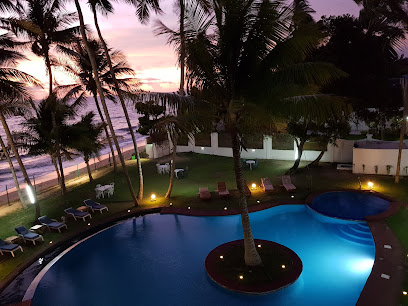
Hôtel Résidence Le Jomonia
Experience the perfect blend of comfort and local culture at Hôtel Résidence Le Jomonia, your ideal base in Libreville, Gabon.
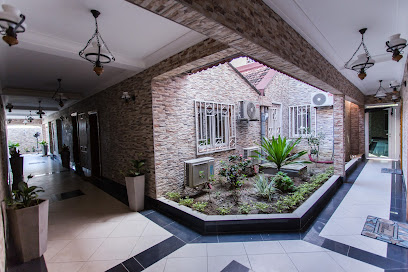
Saint Peter's Cathedral
Explore the architectural beauty and spiritual significance of Saint Peter's Cathedral in Libreville, Gabon, a must-visit landmark for every traveler.
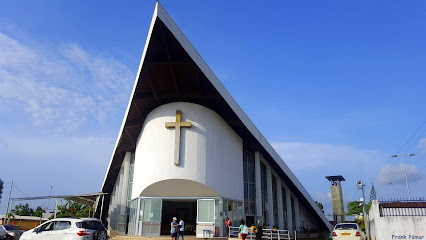
Hôtel Leet Dorian
Discover comfort and local charm at Hôtel Leet Dorian in Libreville, your perfect base for exploring Gabon's vibrant culture and stunning landscapes.
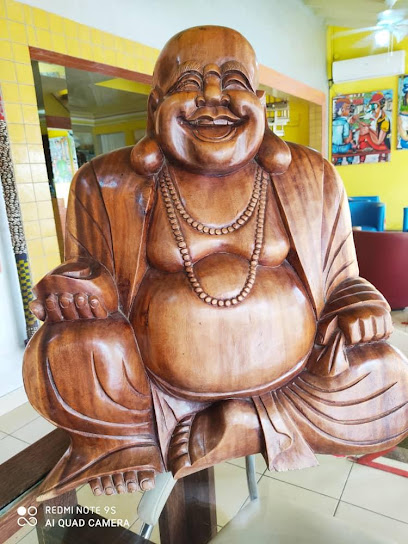
Hassan II Mosquee
Explore the breathtaking Hassan II Mosque in Libreville, a stunning architectural wonder reflecting Gabon's rich Islamic heritage and cultural significance.
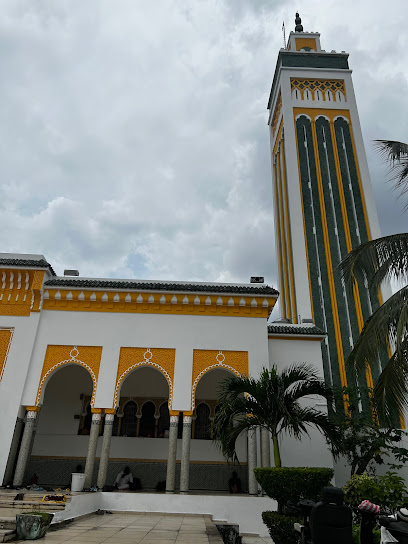
Notre Dame de Lourdes
Explore the stunning architecture and serene atmosphere of Notre Dame de Lourdes, a captivating Catholic church in Libreville, Gabon.
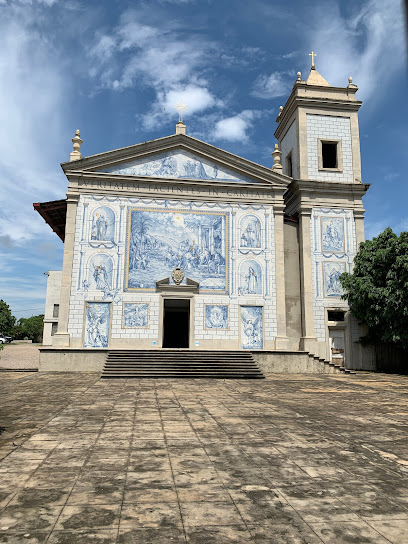
Unmissable attractions to see
Casino Croisette
Experience the thrill of gaming and vibrant nightlife at Libreville's premier casino, featuring slots, table games, and live entertainment.
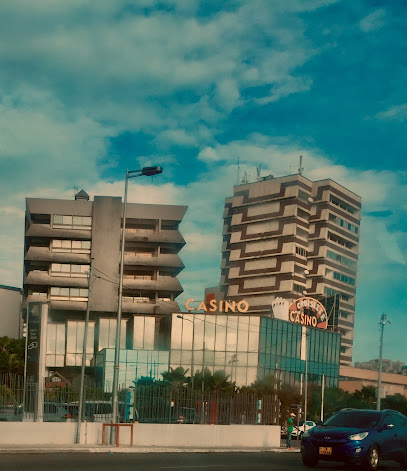
Village des Artisans
Discover Gabon's artistic soul at Village des Artisans: handcrafted treasures, cultural stories, and local artistry in Libreville.
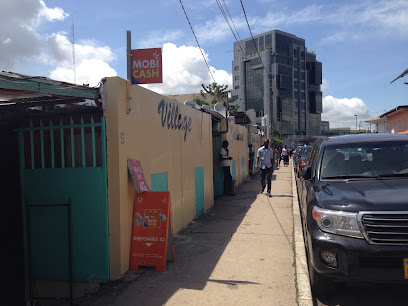
Church of St. Michael Nkembo
Discover Libreville's artistic gem: Church of St. Michael Nkembo, where Gabonese craftsmanship meets biblical storytelling in a sacred space.
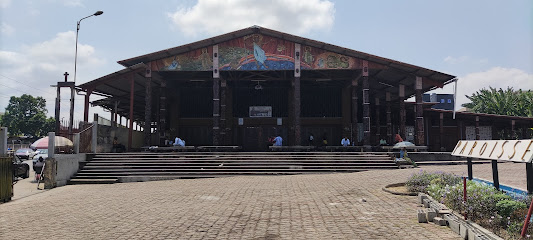
Cathédrale Sainte Marie
Discover Cathédrale Sainte Marie in Libreville: a blend of faith, history, and architectural beauty in the heart of Gabon.
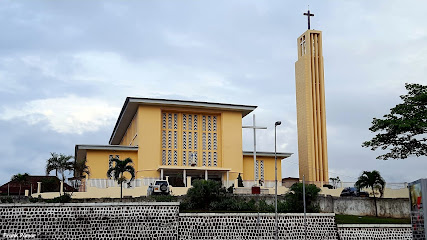
Akanda National Park
Discover Gabon's coastal gem: Akanda National Park, a sanctuary of mangroves, beaches, and diverse wildlife near Libreville.
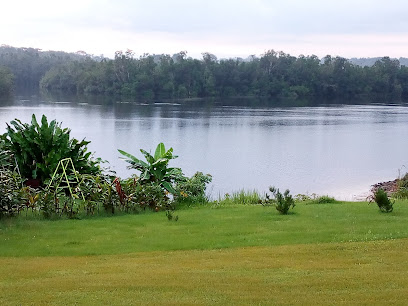
Tsunami
Experience thrilling slides and relaxing pools at Libreville's premier water park, offering fun for the whole family and a refreshing escape.
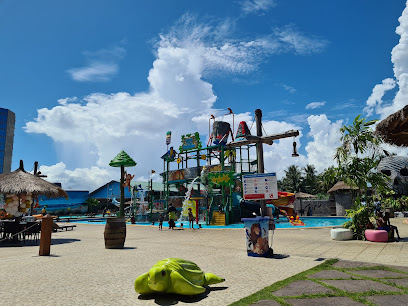
The Bay Of Kings
Discover the scenic Bay of Kings in Libreville: a blend of history, culture, and stunning coastal beauty.
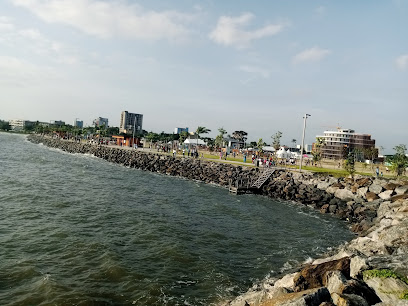
La baie des rois de Libreville
Experience modern Libreville at La Baie des Rois: a vibrant waterfront destination blending culture, commerce, and stunning ocean views.
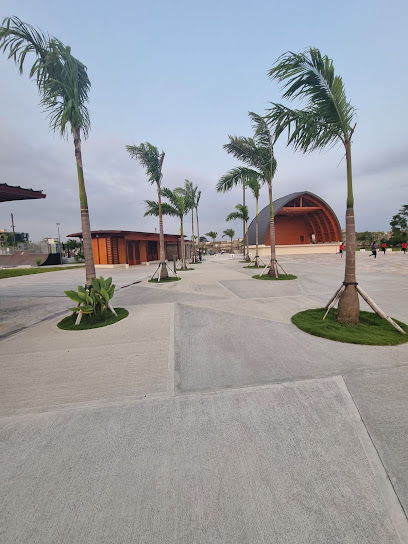
Rond-point de la Démocratie
Discover Gabon's democratic spirit at Rond-point de la Démocratie, a vibrant Libreville landmark where history and culture converge.
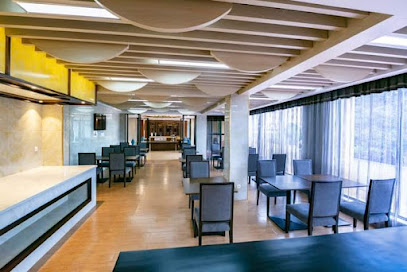
Hassan II Mosquee
A landmark mosque in Libreville, celebrating the enduring friendship between Gabon and Morocco with its stunning Arab-Muslim architecture.
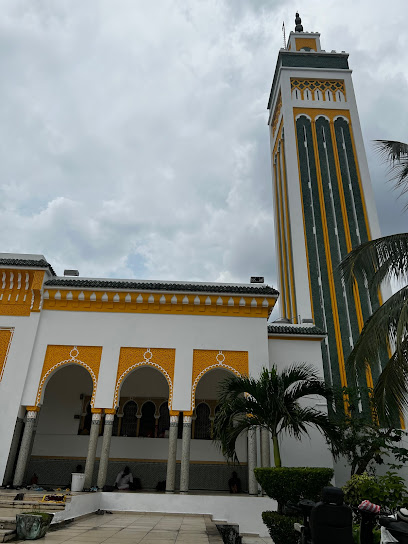
Notre Dame de Lourdes
Discover the architectural beauty and spiritual serenity of Notre Dame de Lourdes, a must-see landmark in Libreville, Gabon.
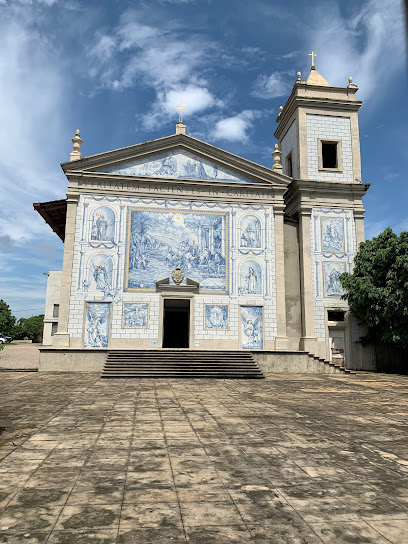
Seaside Libreville
Experience the beauty of Gabon's coast at Seaside Libreville: stunning views, vibrant culture, and tranquil beaches await!
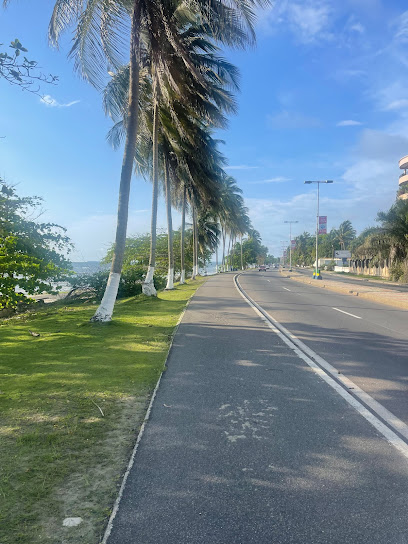
TOP-PARC OWENDO
Experience fun and excitement at TOP-PARC OWENDO, Libreville's vibrant amusement center for families and thrill-seekers!
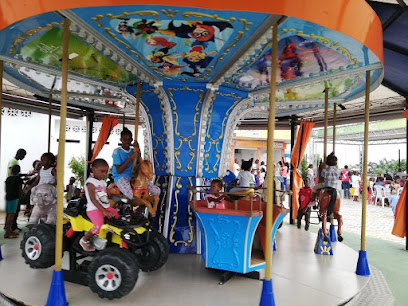
Arboretum Raponda Walker
Discover Gabon's rich biodiversity at Arboretum Raponda Walker: a natural paradise for eco-tourism and environmental education.
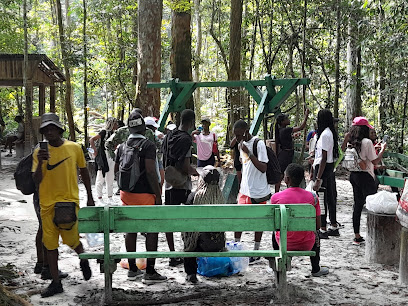
Zoobotanique de Santa Clara Garden
Discover Gabon's natural beauty at Libreville's Zoobotanique de Santa Clara Garden: hiking, picnics, diverse flora, and camping!
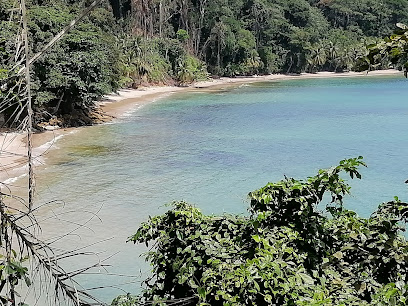
Essential places to dine
BANTU Restaurant – Restaurant – Bar – Pizzeria
Experience the vibrant flavors of Gabon at BANTU Restaurant - where pizza meets local culture in the heart of Libreville.
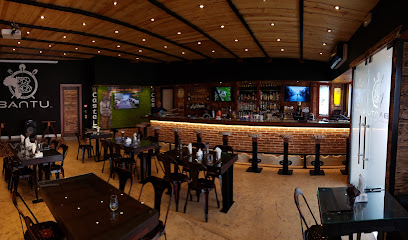
La Voile Rouge
Experience the vibrant flavors of Gabon at La Voile Rouge in Libreville – where local meets international cuisine.
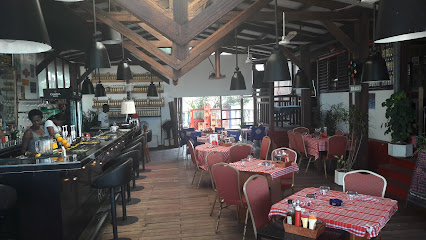
Tropicana
Discover exquisite flavors at Tropicana in Libreville – where local cuisine meets international flair.
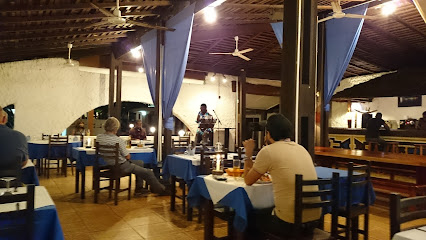
Beach Club
Experience exquisite French and African cuisine at Beach Club in Libreville - a culinary paradise by the sea.
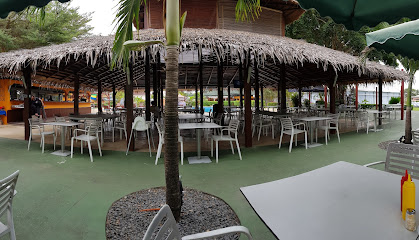
Lamaia Lounge Bar & Restaurant
Discover exquisite flavors at Lamaia Lounge Bar & Restaurant in Libreville - where local taste meets French sophistication.
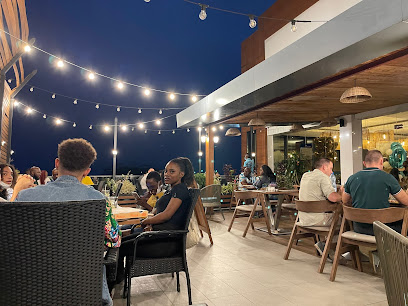
Delektable
Savor the flavors of Gabon at Delektable, where local ingredients meet international culinary artistry in a vibrant setting.
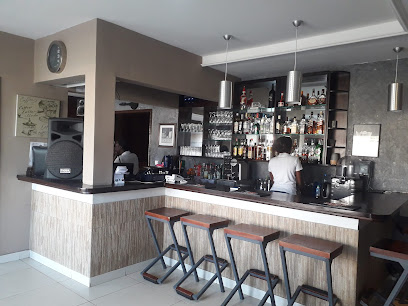
Roma Restaurant & Hotel
Experience authentic Italian cuisine and cozy accommodations at Roma Restaurant & Hotel in Libreville – where flavor meets comfort.
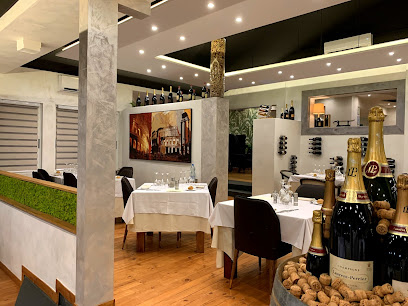
Bodega Mbolo
Experience the vibrant flavors of Libreville at Bodega Mbolo – where local meets international cuisine in an inviting atmosphere.
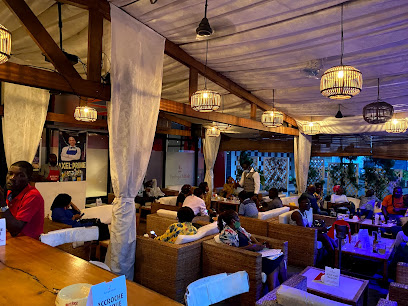
Amigo's Restaurant
Discover delicious local flavors at Amigo's Restaurant in Libreville - where every meal tells a story.
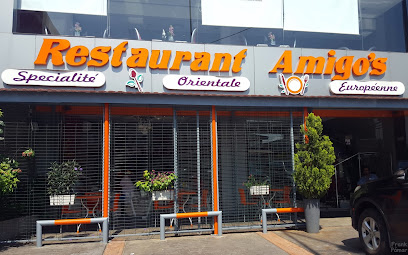
L'Odika
Experience authentic African cuisine at L'Odika in Libreville - where tradition meets flavor in every dish.
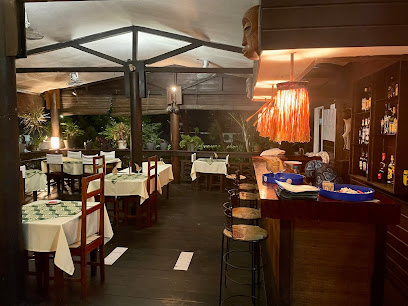
Sakura
Discover the authentic flavors of Japan at Sakura in Libreville - where every dish tells a story.
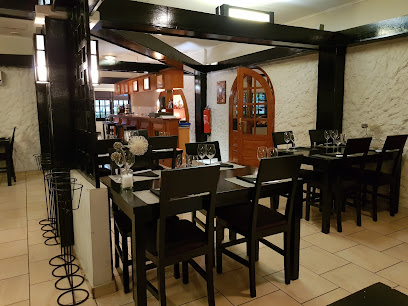
Restaurant Le Mississipi
Experience exquisite local and international cuisine at Restaurant Le Mississipi in Libreville's vibrant Petit Paris district.
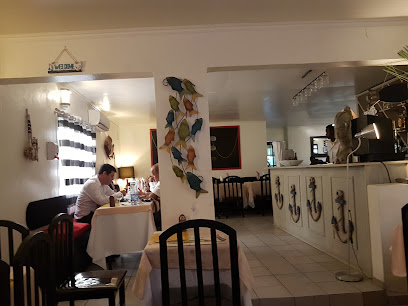
L'assiette d'or
Experience the best of Gabonese cuisine at L'assiette d'or in Libreville - where tradition meets contemporary dining.
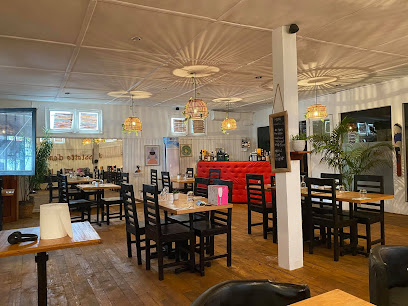
Le Shalimar
Experience authentic Indian flavors at Le Shalimar in Libreville—where every dish tells a story.
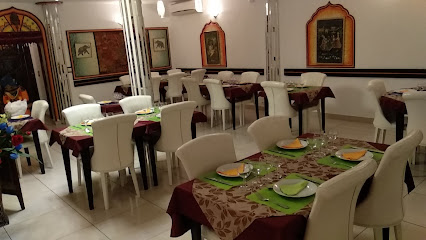
Le Wap’
Experience the vibrant culinary scene at Le Wap’, where authentic Gabonese flavors meet international cuisine in the heart of Libreville.
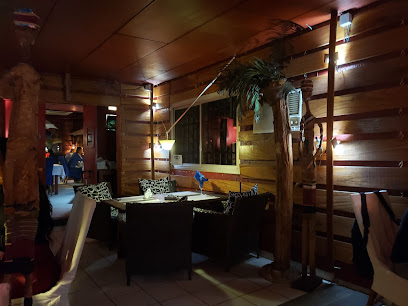
Markets, malls and hidden boutiques
Village des Artisans
Discover authentic Gabonese handicrafts at Village des Artisans, a vibrant marketplace showcasing local craftsmanship in the heart of Libreville.
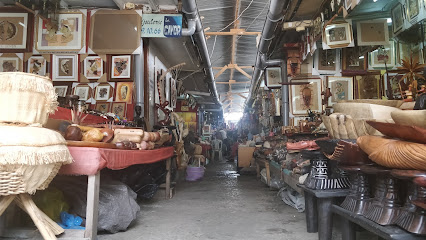
Galerie Marchande de Mont Bouet Hassan Choucaire
Explore the vibrant Galerie Marchande de Mont Bouet Hassan Choucaire in Libreville, a shopping paradise for electronics, beauty products, and local treasures.
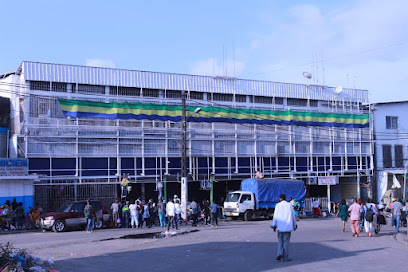
Le Ln@dy's
Discover unique gifts, exquisite candles, and stylish accessories at Le Ln@dy's, a delightful shopping destination in Libreville, Gabon.
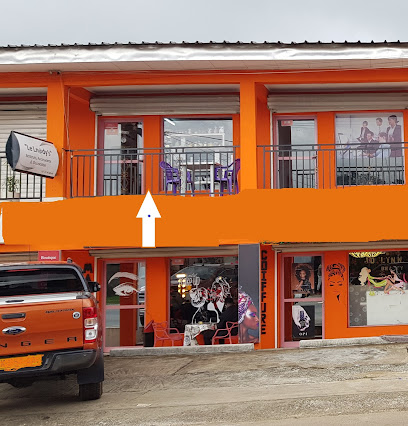
Esprit du Gabon
Explore the essence of Gabon at Esprit du Gabon, a home goods store filled with unique crafts and decor that capture local culture.
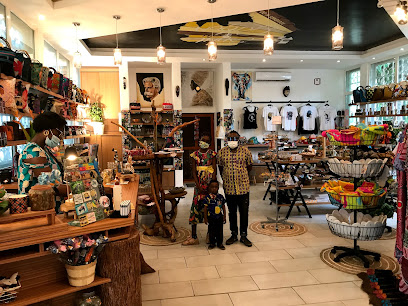
GABON shopping
Discover authentic Gabonese fashion and vibrant local culture while shopping in Libreville's lively clothing stores.
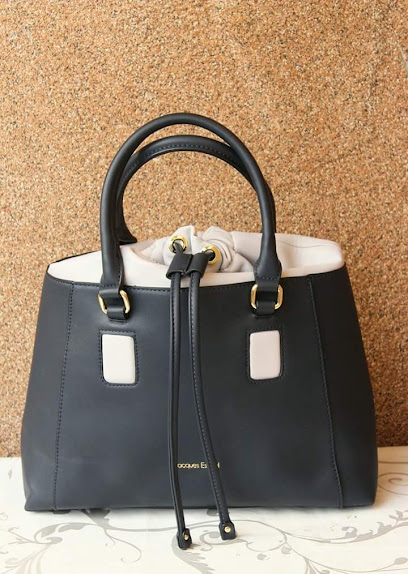
Belle & bien Shop
Explore Belle & Bien Shop in Libreville for a unique blend of beauty supplies, clothing, and authentic Gabonese craftsmanship.
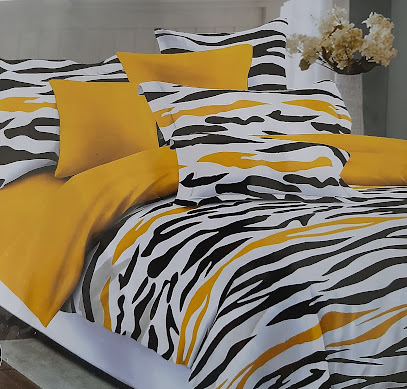
Elegance.Gabon
Discover the vibrant shopping experience at Elegance.Gabon, where local culture meets modern retail in Libreville.
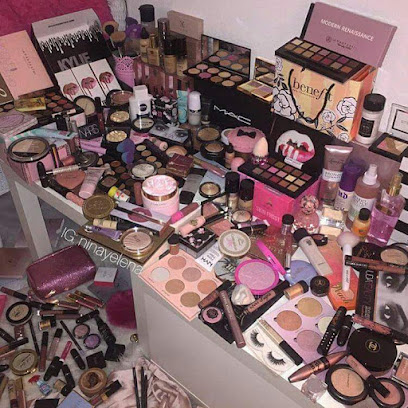
Tendance optic
Explore Tendance Optic in Libreville – a boutique offering stylish eyewear and accessories for a fashionable shopping experience.
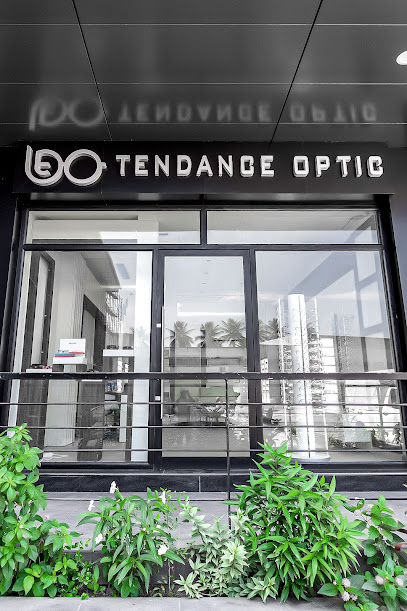
Créations la Fée
Explore Créations la Fée in Libreville for unique gifts that showcase Gabon's rich artistry and culture. Perfect souvenirs await you!
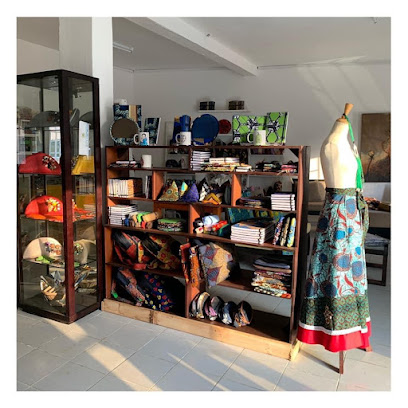
Origines
Discover unique home goods and local craftsmanship at Origines in Libreville, where each piece tells a story of Gabon's rich heritage.
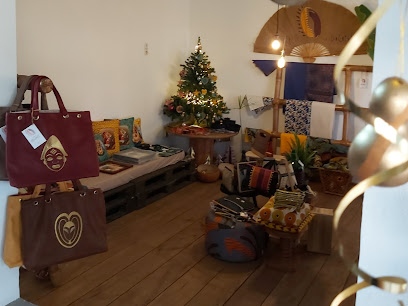
Celio
Discover trendy menswear and stylish clothing at Celio in Libreville, the ultimate shopping destination for fashion-forward tourists.
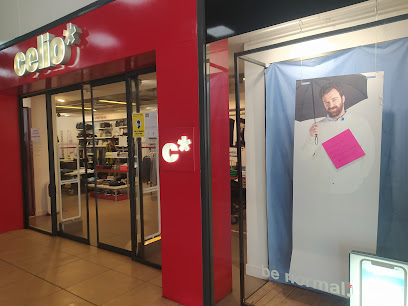
Al's Ngnouta'a Shop Avenue Jean Paul 2
Explore the vibrant world of tobacco at Al's Ngnouta'a Shop, the premier destination for cigars, vaporizers, and more in Libreville.
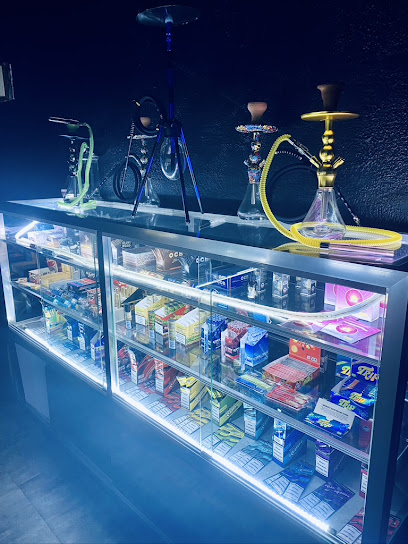
Brunild Boutique
Explore Brunild Boutique in Libreville for unique gifts and local crafts that capture the essence of Gabon and make your visit unforgettable.
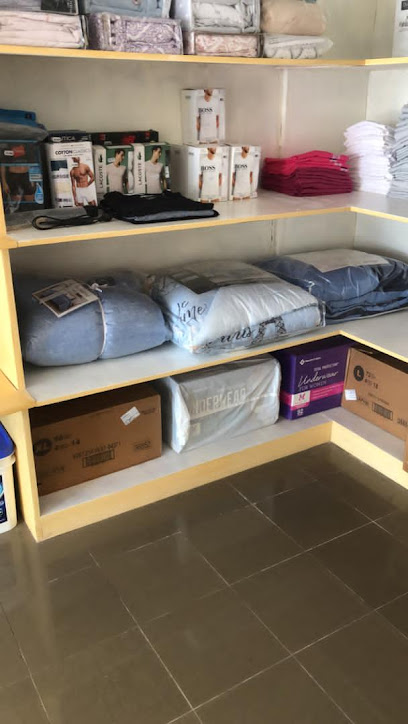
Des Habits & Moi (Taste of Americana)
Explore the vibrant styles of Americana at Des Habits & Moi, a must-visit clothing store in Libreville's Quartier Louis.
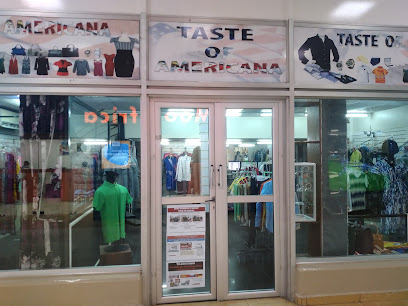
Gigishop Gabon
Explore the latest in technology at Gigishop Gabon, your go-to electronics store in Libreville, Gabon for high-quality gadgets and exceptional service.

Essential bars & hidden hideouts
No Stress
Experience the vibrant nightlife of Libreville at No Stress, a bar that perfectly blends relaxation, great drinks, and a lively atmosphere.
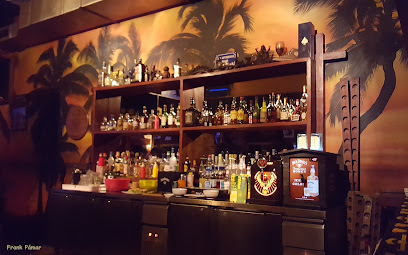
HYPE BAR LOUNGE
Experience the vibrant nightlife at Hype Bar Lounge in Libreville, where great drinks, music, and atmosphere come together.
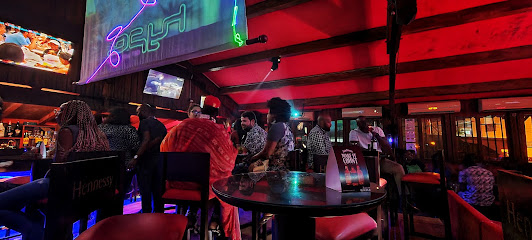
Yoka Sports Bar
Yoka Sports Bar: A lively hub in Libreville for sports lovers and foodies, offering delicious cuisine and a vibrant atmosphere.
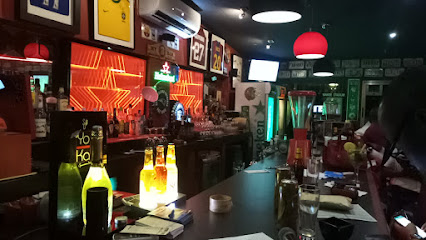
The Lantern
Experience the vibrant flavors of Libreville at The Lantern, a top tapas bar offering a unique blend of local and international cuisine.
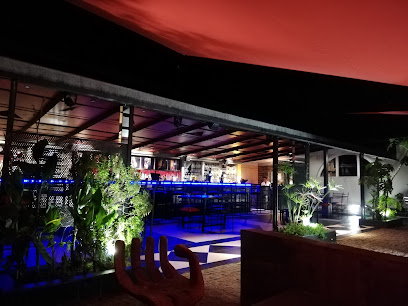
Entre nous Restaurant & Bar
Experience the vibrant flavors of Libreville at Entre Nous Restaurant & Bar, a culinary gem offering a delightful mix of local and international cuisine.
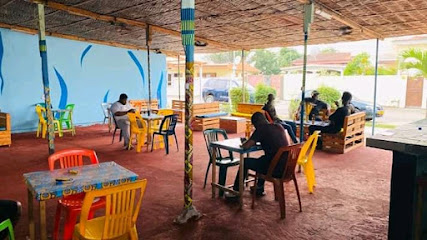
Yoka_Lounge
Experience the serene ambiance and local flavors at Yoka Lounge, a stylish retreat in the heart of Libreville, perfect for relaxation and enjoyment.
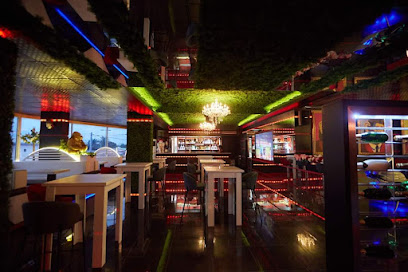
MURMURE
Discover the serene ambiance of Murmure Lounge in Libreville, where local flavors meet modern elegance for an unforgettable experience.
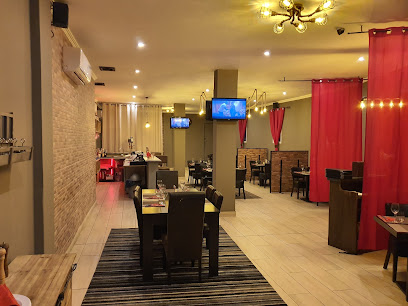
The Spot
Experience the vibrant nightlife and authentic Gabonese culture at The Spot, Libreville's top destination for fun and relaxation.
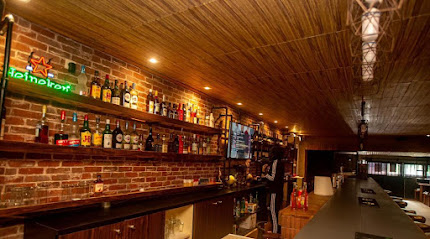
Bar Guiness
Experience the vibrant nightlife of Libreville at Bar Guiness, a cozy bar offering a taste of Gabonese culture and affordable drinks.
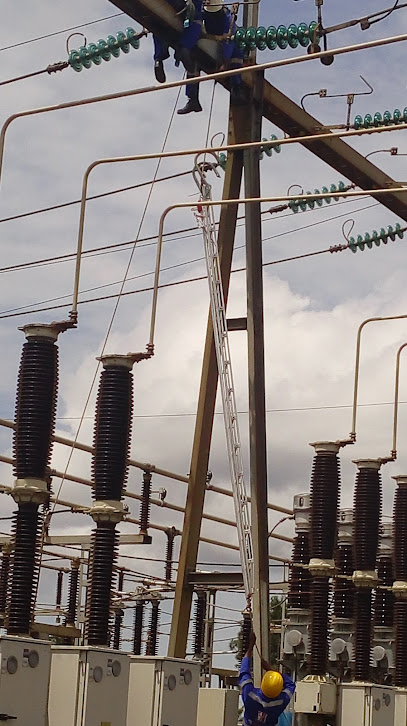
Blu Bar Libreville
Experience the lively nightlife of Libreville at Blu Bar, where refreshing drinks and vibrant ambiance await every visitor.
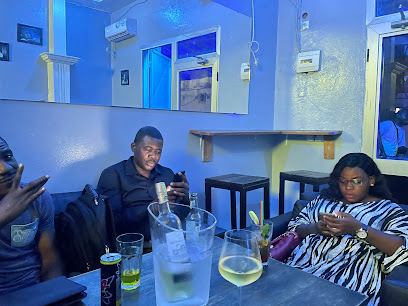
Tipsy Night Club
Unleash your night at Tipsy Night Club, a vibrant hub in Libreville for hookah, cocktails, and unforgettable nightlife experiences.
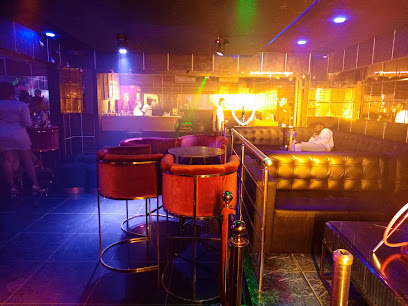
The Black Moon
Discover the vibrant nightlife of Libreville at The Black Moon, a stylish lounge with exquisite cocktails and a lively atmosphere.
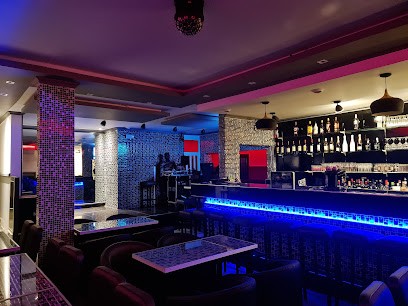
La SUITE Lounge & Wine bar
Discover the vibrant atmosphere and exquisite drinks at La SUITE Lounge & Wine Bar in Libreville, a perfect evening retreat for tourists.
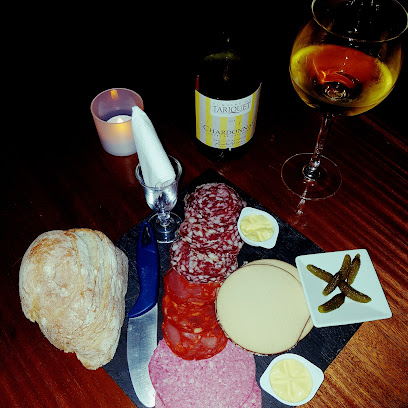
Hama Bar
Experience the vibrant nightlife at Hama Bar in Libreville, where local flavors meet a lively atmosphere for an unforgettable evening out.
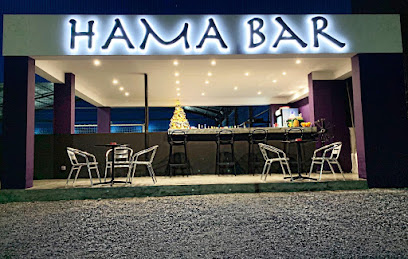
Le Kyel's Bar & Food
Discover the lively ambiance and delightful flavors at Le Kyel's Bar & Food, a popular spot for locals and tourists alike in Libreville.
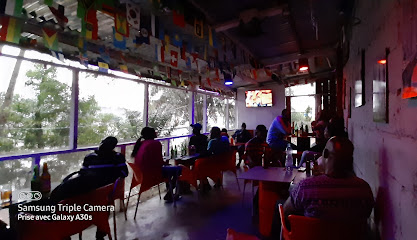
Local Phrases
-
- HelloMbolo
[mboh-loh] - GoodbyeOngonga
[ohn-gohn-gah] - YesEwe
[eh-weh] - NoTe
[teh] - Please/You're welcomeMe ta
[meh tah] - Thank youMesi
[meh-see] - Excuse me/SorryTolobi
[toh-loh-bee] - How are you?Aghe?
[ah-ghay] - Fine. And you?Nde agha. Nde?
[n-day ah-ghah. n-day] - Do you speak English?Ongue uhume Englesa?
[ohn-gway oo-hoo-meh ehn-gleh-sah] - I don't understandTeyi mba
[teh-yee m-bah]
- HelloMbolo
-
- I'd like to see the menu, pleaseMe teka ndo la carte, me ta
[meh teh-kah n-doh lah kahr-teh, meh tah] - I don't eat meatTe mendi nyama
[teh mehn-dee nyah-mah] - Cheers!Awa!
[ah-wah] - I would like to pay, pleaseMe teka linga, me ta
[meh teh-kah leen-gah, meh tah]
- I'd like to see the menu, pleaseMe teka ndo la carte, me ta
-
- Help!Mve
[m-veh] - Go away!Yi kele!
[yee k-eh-l-eh] - Call the Police!Ongue ndongami!
[ohn-gway n-dohn-gah-mee!] - Call a doctor!Ongue mbongome!
[ohn-gway m-bohn-goh-meh!] - I'm lostMekene ngou
[meh-keh-neh n-goh] - I'm illMekene ngou
[meh-keh-neh n-goh]
- Help!Mve
-
- I'd like to buy...Me teka kene...
[meh teh-kah keh-neh...] - I'm just lookingMekene me teka
[meh-keh-neh meh teh-kah] - How much is it?Ayi nga...
[ah-yee ngah...] - That's too expensiveIe ndongi
[ee-eh n-dohn-gee] - Can you lower the price?Ongue mende ndongi?
[ohn-gway mehn-deh n-dohn-gee?]
- I'd like to buy...Me teka kene...
-
- What time is it?Ndola ke?
[n-doh-lah keh] - It's one o'clockNdo mbo
[n-doh m-boh] - Half past (10)Mbo na mpongwe
[m-boh nah m-poh-ng-weh] - MorningMba
[m-bah] - AfternoonMba me
[m-bah meh] - EveningMba ndo
[m-bah n-doh] - YesterdayNtangane
[n-tahn-gah-neh] - TodayMba si
[m-bah see] - TomorrowNdonga
[n-dohn-gah] - 1Mbuh
[m-boo] - 2Mbire
[m-bee-reh] - 3Mbis
[m-bees] - 4Mbit
[m-beet] - 5Mbina
[m-bee-nah] - 6Mbisa
[m-bee-sah] - 7Mbono
[m-boh-noh] - 8Mbos
[m-bohs] - 9Mbovi
[m-boh-vee] - 10Mvungu
[m-voong-oo]
- What time is it?Ndola ke?
-
- Where's a/the...?Iko...
[ee-koh...] - What's the address?Nde diresa?
[n-day dee-reh-sah?] - Can you show me (on the map)?Ongue ndombe (na le plan)?
[ohn-gway n-dohm-beh (nah leh plahn)?] - When's the next (bus)?Nkowe ndo?
[n-koh-weh n-doh?] - A ticket (to ....)Mbongwe (dz...)
[m-boh-ng-weh (deh-z...)]
- Where's a/the...?Iko...
History of Libreville
-
In 1849, Libreville was founded by freed slaves. The city’s name, which translates to 'Freetown' in French, commemorates this event. The freed slaves were settled in the area by French naval forces, who had intercepted a slave ship and released its captives.
-
During the late 19th century, Libreville became an important outpost for French colonial forces. The city served as a key administrative center for French Equatorial Africa. Its strategic location on the estuary of the Komo River facilitated trade and control over the region.
-
Libreville played a significant role during World War II. In 1940, it became a stronghold for the Free French Forces after a brief conflict with Vichy French troops. The victory at Libreville helped solidify General Charles de Gaulle’s influence in the region.
-
Gabon gained independence from France on August 17, 1960. Libreville, as the capital city, experienced rapid growth and modernization in the subsequent decades. The city expanded in infrastructure, education, and healthcare, becoming a vibrant urban center.
-
Libreville is home to several cultural landmarks, including the National Museum of Arts and Traditions, which preserves Gabonese cultural heritage. The St. Michael’s Cathedral, known for its intricate wooden carvings, and the Presidential Palace, a symbol of political power, are also significant sites.
-
As the economic hub of Gabon, Libreville has witnessed significant economic development driven by the oil industry. However, the city faces challenges such as urbanization, housing shortages, and maintaining sustainable growth. Efforts are ongoing to diversify the economy and improve living conditions.
Libreville Essentials
-
Libreville is accessible via the Léon-Mba International Airport (LBV), which is the main international gateway to Gabon. Several major airlines operate flights to Libreville from Europe, Africa, and the Middle East. Once at the airport, taxis and car rental services are available for transport into the city. There are also occasional bus services connecting Libreville with other major cities in Gabon.
-
Transportation within Libreville includes taxis, minibuses (known locally as 'clandos'), and car rentals. Taxis are the most reliable and widely used mode of transport. It is advisable to negotiate the fare before the journey. The minibuses are cheaper but can be crowded and less punctual. For a more flexible option, consider renting a car, but be prepared for traffic and varying road conditions.
-
The official currency of Gabon is the Central African CFA Franc (XAF). Credit cards are accepted in most hotels, restaurants, and larger shops, but it is advisable to carry cash for smaller establishments and markets. ATMs are widely available in Libreville, and it is recommended to use those affiliated with major international banks for reliability.
-
Libreville is generally safe for tourists, but caution is advised. Petty crime, such as pickpocketing and bag snatching, can occur in crowded areas. Avoid walking alone at night, especially in areas like the Nkembo and Akebe neighborhoods, which have higher crime rates. Stick to well-lit, populated areas and be cautious with your belongings.
-
In case of emergency, dial 177 for police assistance and 1300 for medical emergencies. The main hospital in Libreville is the Hôpital d'Instruction des Armées Omar Bongo Ondimba, which offers comprehensive medical services. Pharmacies are widely available for minor health issues. It is advisable to have travel insurance that covers medical emergencies.
-
Fashion: Do dress modestly, especially in religious or formal settings. Avoid wearing overly revealing clothing. Religion: Do respect local customs and practices. Always ask for permission before taking photos in religious sites. Public Transport: Do be patient and polite. Minibuses can be crowded and schedules erratic. Greetings: Do greet people with a handshake. Using 'Bonjour' (Good morning) is appreciated. Eating & Drinking: Do try local dishes and be gracious when offered food. Avoid eating or drinking in public transport.
-
To experience Libreville like a local, visit the Marché du Mont-Bouet, one of the largest markets in the city, where you can buy fresh produce, clothing, and local crafts. Engage with locals, who are generally friendly and willing to share insights into their culture. Don't miss the seafront promenade, where you can enjoy a leisurely walk and local street food. For a unique experience, visit Pointe Denis for its beautiful beaches and water activities.
Trending Landmark in Libreville
-
Sibang Arboretum
-
Village des Artisans
-
Church of St. Michael Nkembo
-
Park Inn by Radisson Libreville
-
Cathédrale Sainte Marie
-
Cecado Glass
-
Akanda National Park
-
Lopé National Park
-
National Museum of Arts, Rites and Traditions of Gabon
-
Residence Oceane
-
Hôtel Résidence Le Jomonia
-
Saint Peter's Cathedral
-
Hôtel Leet Dorian
-
Hassan II Mosquee
-
Notre Dame de Lourdes
Nearby Cities to Libreville
-
Things To Do in Mbini
-
Things To Do in Lambaréné
-
Things To Do in Santo Antonio
-
Things To Do in Kribi
-
Things To Do in Bitam
-
Things To Do in Sao Tome City
-
Things To Do in Ribeira Afonso
-
Things To Do in Trindade
-
Things To Do in Guadalupe
-
Things To Do in Angolares
-
Things To Do in Neves
-
Things To Do in Santa Catarina
-
Things To Do in Ebolowa
-
Things To Do in Luba
-
Things To Do in Malabo










